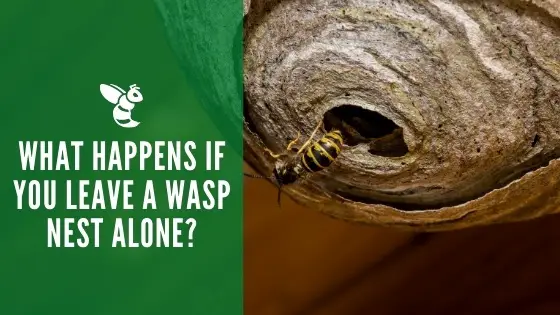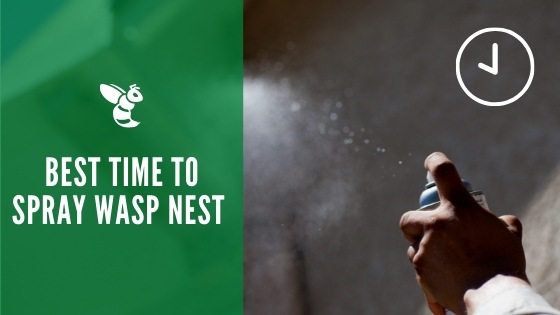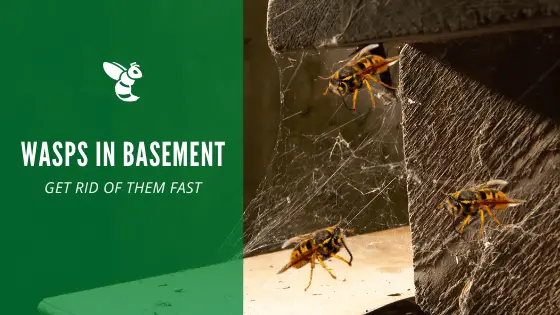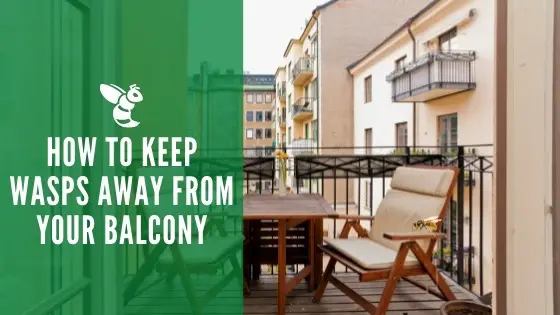What Happens If You Leave a Wasp Nest Alone?

If your eave has become a haven for wasps, you may wonder how to proceed. Should you destroy the nest, or should you leave it alone? If you leave it, what happens? You might question if the wasps will live there all winter or if they’ll come back.
What Does a Wasp Nest Look Like?
Firstly, you should identify whether the nest you have is a wasp nest or not. If you didn’t see wasps flying about, you want to be sure that’s what type of nest it is.
A wasp nest is usually brown or gray. It looks almost as if they made their nest from paper mache. It looks similar in space to a ball, but you can usually see a swirl pattern because of the various layers of the nest.
Nests usually start popping up in early spring and will continue into summer. At that point, the nest may only be the size of a golf ball. However, as summer progresses and the population of wasps grows, the nest could become the size of a basketball.
On the other hand, if you have a mud dauber wasp, the nest will be much smaller. It usually doesn’t have a pattern but will instead look like a mound of mud with one or more holes.
What Are the Dangers of Wasps?
Wasps are aggressive insects and are incredibly territorial. They have long stingers that they will use to defend the colony. Once they sting, they won’t lose their stinger. Therefore, they can sting multiple times if they feel threatened. Mud dauber wasps are less territorial and aren’t likely to defend their nests, but they can still hurt people or pets.
If you come in contact with one of the social species of wasp nests, you could be stung repeatedly by multiple wasps because they’ll attack in groups.
Keep in mind that their stingers are loaded with venom, which can cause a reaction from minor, localized swelling and pain to swelling of the tongue and throat and breathing difficulties. The reaction you have depends on how sensitive you are to the venom.
What Happens if You Leave the Nest Alone?
When you leave the nest alone, you’ll still have to contend with the wasps and the worry of you or a family member angering them enough to attack. Your pets also pose the risk of being stung or swallowing one.
However, you can leave the nest alone, and as long as you don’t disturb them, they usually won’t pose a threat.
How Long Does a Wasp Nest Last?
A wasp nest usually lasts about three to four months.
Wasps tend to die outcome fall and winter because they can’t survive the cold. The queen won’t remain in the nest.
Instead, she’ll hibernate until spring. You could decide to remove the nest once the wasps abandon the nest.
Do Wasps Come Back to the Same Nest Each Year?
A nest that’s left until the next year will not be reused by the same queen or a new group of wasps. Wasps may, however, come to the same location and build another nest close to the old one if it’s still there.
Are Wasps Beneficial?
Surprisingly, wasps do have their share of benefits, such as being pollinators. Like bees, wasps will carry pollen on them from one flower to another flower. Certain wasps are the only ones to pollinate figs.
Besides their pollination abilities, they’re also known to keep certain pests away. For instance, they prey on armyworms, which can be destructive to plants when they’re in large numbers. Wasps may also keep cockroach populations at bay. In addition, wasps have been known to take out aphids, which are also harmful to plants.
Moreover, wasps can benefit other living creatures. Sometimes, they’ll share their nest with other insects that are beneficial to the environment, such as the hoverfly. Hoverflies don’t sting or bite, but they pollinate plants.
Should You Get Rid of a Wasp Nest?
You could choose to get rid of the nest if you want or if it poses a problem. However, it’s not necessary. Wasps aren’t vicious creatures unless provoked. Therefore, you and wasps can live together harmoniously and leave each other alone.
Since the wasps have benefits, by you leaving them alone, they’ll pollinate and keep unwanted pests away. You could wait until the nest is dormant and then remove it from your home.
On the other hand, if you find the wasps are becoming a nuisance, you could get rid of them. You should watch what you use to get rid of the nest because most sprays on the market are toxic.
They consist of an insecticide that can cause immediate effects, such as lung or eye irritation. The insecticides could cause your pet to experience diarrhea, nausea, or excessive drooling.
If you want to remove the nest without chemicals, you could try dishwashing soap and water or a mixture of dish soap, vinegar, and water.
You could choose to let the nest go while the wasps are still living in it. Once you know for sure that they’ve all left the nest, you can remove the nest with no harm to yourself or the wasps.
This is truly your decision. And you may want to make it based on whether the nest is bothering you and your family or not. Wasps may frighten you just because of their stingers.
They’re not as intimidating as you may believe, and they even have benefits. Therefore, you should carefully decide whether to remove the nest or not.




